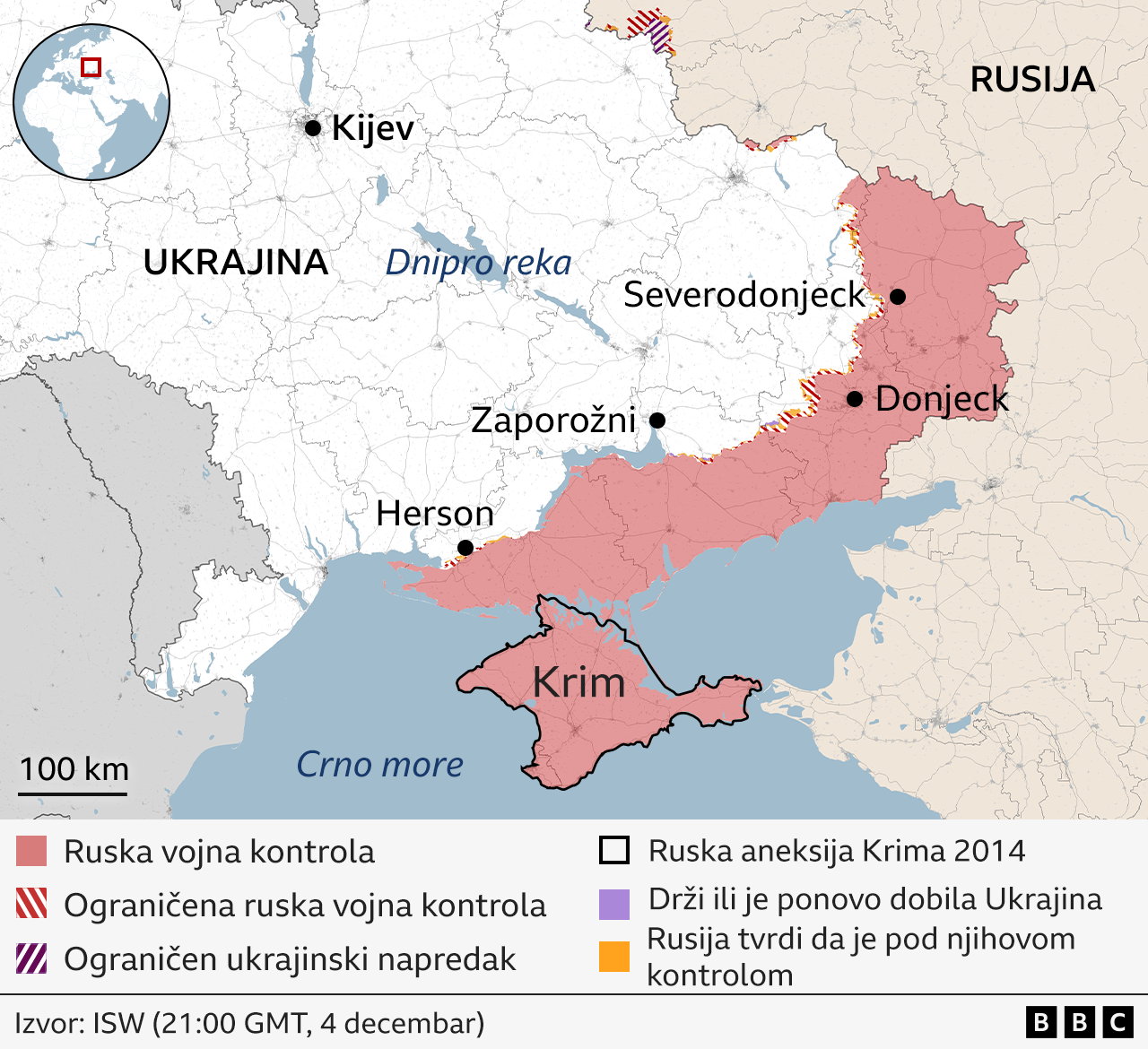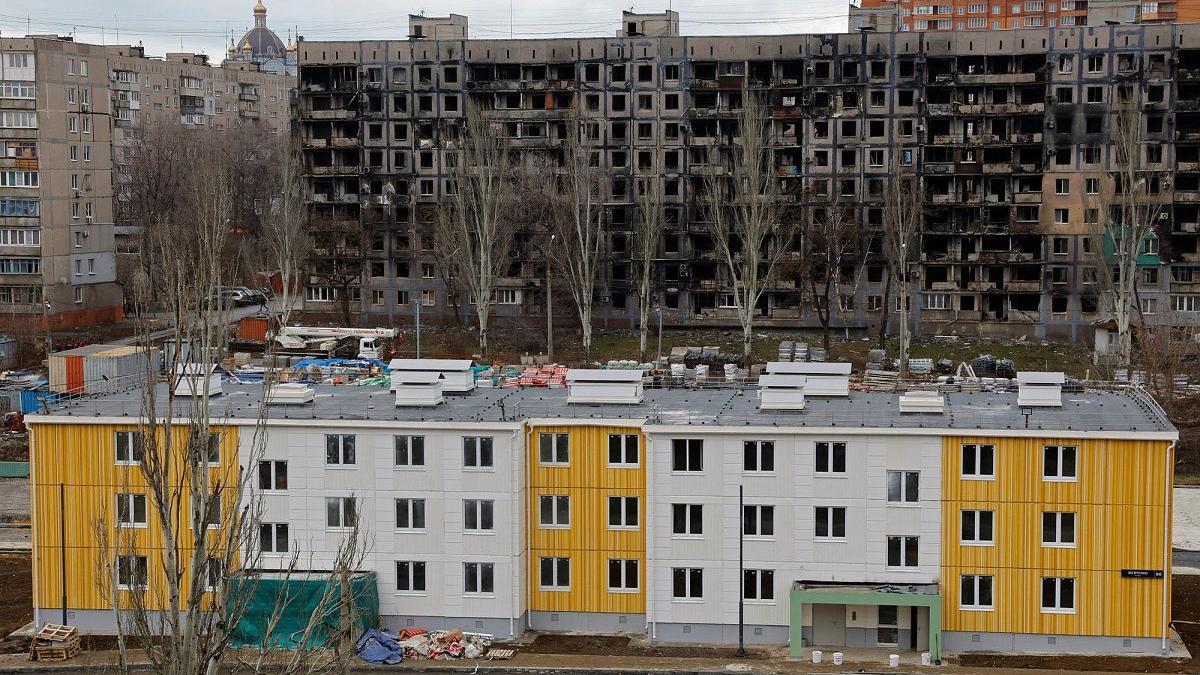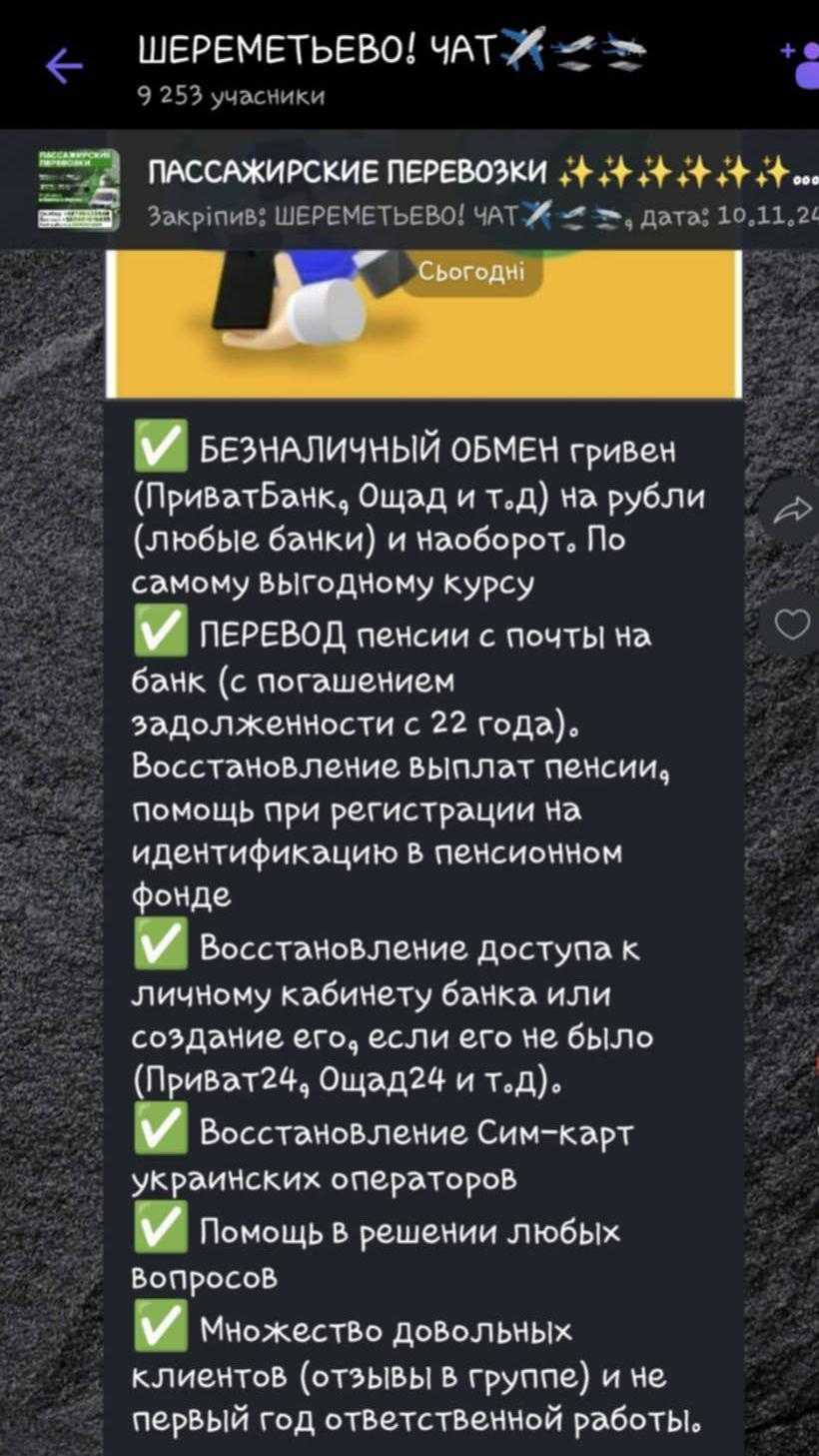The claim of a Ukrainian politician that as many as 150,000 internally displaced people have returned to parts of the country under Russian occupation in the last few months raises the question of the Ukrainian government’s aid for refugees and what these people risk by going to the occupied territory.
Maxim Tkachenko, an MP from the ruling party of Ukrainian President Volodymyr Zelenskiy, said that the internally displaced Ukrainians decided to return, despite the risk posed by life in the occupied territory, because the government did not provide them with enough support.
After the authorities rejected Tkachenko’s claim, he retracted it, accepting that there was no way to confirm the exact numbers of refugees who had returned.
The UN estimates that since the beginning of the full invasion, 6.2 million Ukrainians have left the country and sought refuge in Europe.
Another 4.6 million are internally displaced.
Before the full invasion, the UN estimates that the population of Ukraine numbered around 40 million people.
How many people are trying to come back?
MP Maksim Tkachenko, who is from eastern Ukraine and works with internally displaced persons, has repeatedly stated that there is a trend of people returning to the occupied territories, a claim supported by former Ukrainian official from the city of Mariupol, Petro Andriushchenko.
Marijupolj has been under Russian occupation since the spring of 2022.
Andriushchenko says that the trend started in 2023, when the Ukrainian authorities stopped monthly payments to internally displaced persons, although the main problem for most of them, he believes, is finding affordable temporary housing.
The Ukrainian government responded by saying there was no reliable data to support these claims.
“I will never believe that thousands of Ukrainians are returning to Russian occupation because they do not receive some 2,000-3,000 hryvnias (US$50-70 per month) in government aid,” said Ukrainian Deputy Prime Minister Irina Vereshchuk.
She pointed out that the government is doing everything it promised to the displaced, despite the scarcity of resources.
Russian media cited a Russian border control representative as saying that 107,000 Ukrainians had arrived at Moscow’s Sheremetyevo airport since October 2023, and that 83,000 of them had been cleared to enter.
Sheremetyevo Airport is the only border crossing through which Ukrainian citizens can enter Russia.
Lidija Kuzemska, a sociologist who studies forced migration, says that there has been an influx of people returning to the occupied territories, but that due to the absence of reliable data, it is impossible to determine what percentage of people return permanently and how many of them just travel there and back.
Reasons for returning

Sociologist Kuzemska points out that the key reason why the displaced might want to return is to prevent their property from being nationalized by the Russian authorities.
A new Russian law requires owners of Ukrainian property to produce Russian passports and re-register the property in person.
“If people don’t want to lose ownership of their property, we can assume that they will return to the occupied territories to get a passport, sell their property and leave,” says Kuzemska.
The BBC spoke to several people whose friends and acquaintances returned to the occupied territories.
Kyiv resident Olena (not her real name) has a friend whose retired parents recently returned to the occupied part of Donetsk Oblast, after fleeing their home in 2022 when total war broke out.
“My friend managed to convince her parents to leave, but she didn’t manage to keep them here in Kiev. These are elderly people who could not cope with living in rented accommodation and with all that they left behind and for which they have always worked. And they simply couldn’t accept that their children were paying the rent,” explains Olena.
Svetlana, who lives in southern Ukraine and whose town was flooded with IDPs in 2022, says her friends, a married couple from Mariupol, lived not far from them and seemed to have settled in successfully.
They recently decided to return to Marijupolj.
“It was completely unexpected. I thought they were doing well here, but they moved even though their apartment in Marijupolje was destroyed. They left the company in Marijupolje. Now their daughter writes pro-Russian posts on social networks,” explains Svetlana.

In 2023, Russian President Vladimir Putin signed a decree making it mandatory for those living in the occupied territories to apply for a Russian passport by December 31, 2024, otherwise these Ukrainians will be considered foreign citizens and will not receive a residence permit or even awaiting deportation.
The Russian Ministry of Internal Affairs said that about 3.4 million passports were issued to Ukrainians in eastern Ukraine in the last two years.
A Russian passport is required not only to prove ownership of property, but also to access healthcare, receive a pension and use other basic services.
Russian citizenship also means that Ukrainian men can be conscripted into the Russian army to fight against Ukraine.
“Filtration” at the airport
Ukrainians who decide to return to the occupied territories from Ukraine must travel to Russia via third countries and arrive at Sheremetyevo airport, where they undergo security checks, also known as “filtration”.
“This is done to determine who will be allowed to enter Russia and who will not. “Some people stay there for a few days, and some for a whole week,” explains Halina (name changed), who comes from Severodonetsk in eastern Ukraine.
She has several acquaintances who had to travel through Sheremetyevo to return to this city, badly damaged in the fighting and now under Russian control.
“They ask people what they think about the ‘special military operation’ (Russia’s official term for war) and who is the real owner of the occupied territories. They check their phones, check their luggage. They send many back and do not allow them to enter Russia,” says Halina.
Halina has a Viber group on her phone with about 10,000 members, where people exchange advice on how to return to the occupied territories.

The risks of returning
Lisiyanski, a political and legal expert who oversees the process of Ukrainians trying to return to occupied territories to reclaim property, says many are not allowed to enter Russia, and some are punished for being denied entry.
“In the occupied Ukrainian territories, the Russian authorities are now actively confiscating property belonging to the local population. They don’t want people there who remember history. Now many Russian citizens of different ethnic origins are being brought to the occupied territories,” he says.
Russian authorities are recruiting doctors, teachers, police officers, construction workers and security guards from across Russia and Central Asia to work in Russian-controlled towns and villages in Ukraine.
The salaries offered to them are often several times higher than what is paid in Russia.
The risk of persecution of Ukrainians and erasure of their national identity in the occupied territories is also a cause of concern for human rights activists and international organizations.
Earlier this year, the Organization for Security and Cooperation in Europe (OSCE) published a report detailing abuses against Ukrainian civilians, including illegal arrests and torture, claiming that these abuses constitute a planned strategy.
Representatives of the UN and OSCE say that such acts can represent not only war crimes but also crimes against humanity.
Russian authorities deny targeting civilians and reject accusations made by international organizations.
To help IDPs in Ukraine, the authorities should pay more attention to the problems these people face, says Andrey Dekhtiarenko, a journalist who writes regularly on the topic.
“There is practically no aid for the displaced, payments have been canceled for many, there is not even enough accommodation – these are all the realities of survival for internally displaced persons in Ukraine at the moment,” he says.
Follow us on Facebook, Twitter, Instagram, YouTube i Wayberu. If you have a topic suggestion for us, please contact bbcnasrpskom@bbc.co.uk

News
Source: www.vijesti.me


